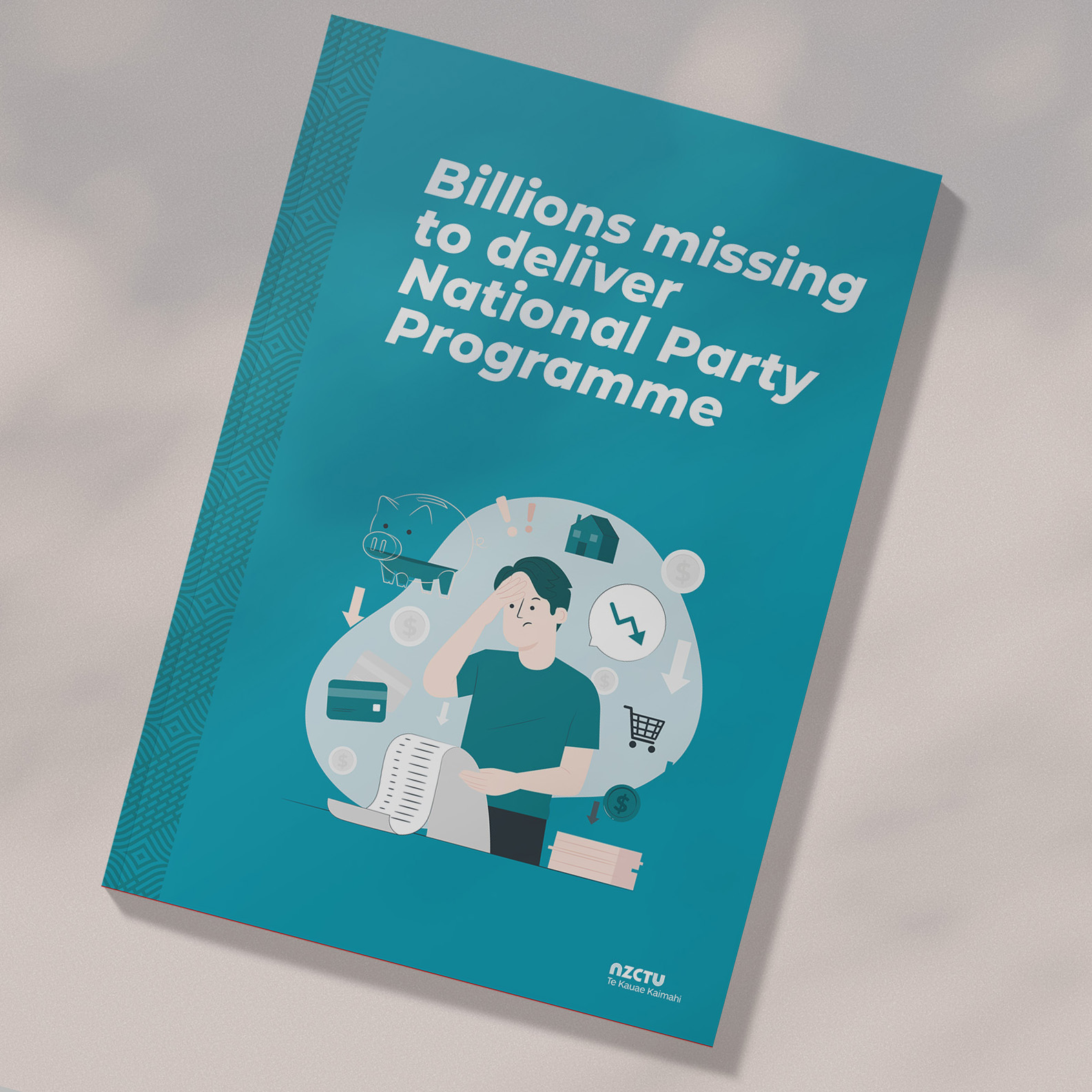The New Zealand Council of Trade Unions has today released costings showing a current funding shortfall of at least $3.3-5.2 billion in the National Party’s tax and spending plans.
The true gap is likely to be even larger, as many of National’s publicly stated policy commitments were either uncosted or were too vague to be included in the analysis.
NZCTU Economist Craig Renney says the shortfall raises concerns about the impact on crucial public services that New Zealanders rely upon.
“Our costings show National has spent around two dollars for every dollar available over the next
three years. Further billions are likely from the policies that they have not yet costed or will likely announce on the campaign trail.
“A shortfall of this magnitude can only be accounted for by raising debt, increasing other taxes, or slashing funding for critical public services like healthcare, education, and police.
“Given National has ruled out raising debt or increasing taxes, this can only mean billions of dollars in cuts to our already stretched public services. Cuts of this scale would have severe consequences for the people who depend on these services and the workers who deliver them.
“National must be upfront about where these cuts would come from. New Zealanders deserve to know long before the election what programmes will be cut, what investment wouldn’t get made, and how National will balance the books – because on these plans they aren’t.”
The NZCTU took on this task of costing National’s policies as, in contrast to other opposition parties in recent elections, National has yet to release its fully costed fiscal plan.
“It is essential for opposition parties to be transparent and accountable by sharing comprehensive fiscal plans. National cannot promise billions in tax cuts and pretend there will be no impact on our stretched public services.
“If National disagrees with this analysis, we invite them to present a fully costed alternative budget of their own, one that costs all of their policies and is clear about where the money will come from, including which public services will be cut.”
Methodology
The NZCTU’s analysis is based on publicly available information from the Treasury and IRD. The NZCTU has used the most generous interpretations when costing National’s policies. Even when disagreeing with National’s costings of their own policies, the NZCTU used National’s figures.
According to Treasury, there is $3.5 billion of new operational spending available in each of the 3 years of the next term.
Treasury also notes that at least $2.8 billion in cost pressures funding will be needed in each year to maintain our existing public services. This figure is just to keep delivering the same services as the previous year. It does not account for population increase, demographic changes, or new services.
That leaves around $700 million in ‘new’ money that is available each year, or $4.2 billion over three years.
National has set out between $7.5 billion and $9.4 billion of new spending over that period that we can identify based on their tax and spending commitments that are able to be costed. This is two dollars for every dollar available, leading to a fiscal gap of at least $3.3 billion to $5.2 billion.
No costs have been assigned to National’s vaguer policy commitments, although they should provide that analysis. This costing also assumes no further policies from National during the election campaign, or any governing partners’ policies. It also provided no contingency for emerging needs such as natural disasters or future Budgets. This is the minimum amount that they will need to cut to balance the books.
The analysis and the numbers within were reviewed by Dr Geoff Bertram, Economist and Former Senior Associate at the Institute of Government and Policy Studies at Victoria University.
The figures do not take into account the National Party’s transport announcement yesterday, though as these are delivered through the National Land Transport Fund, they will not have a material impact on the NZCTU’s costings.
